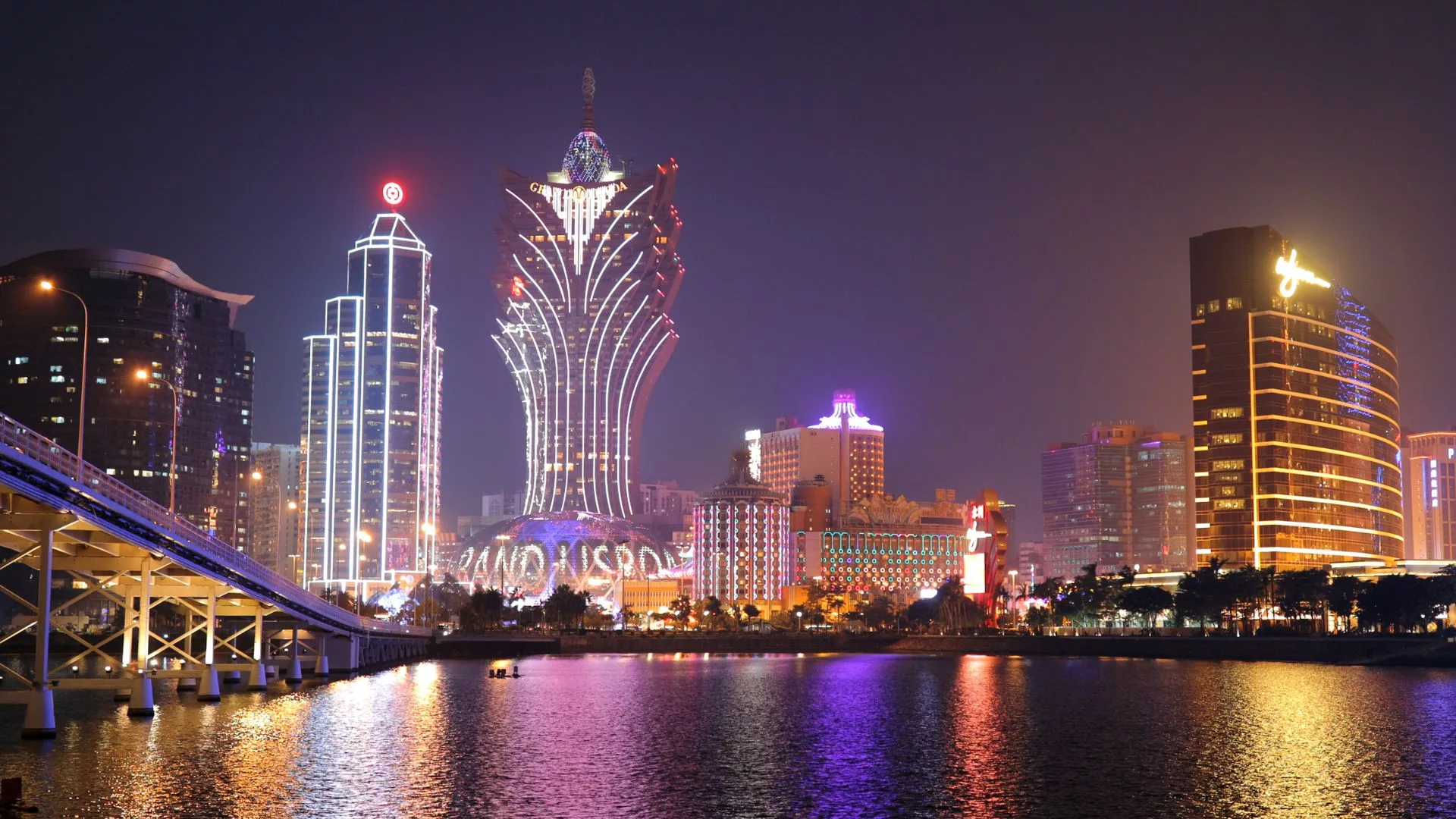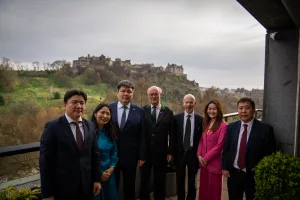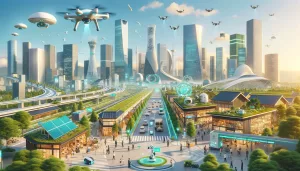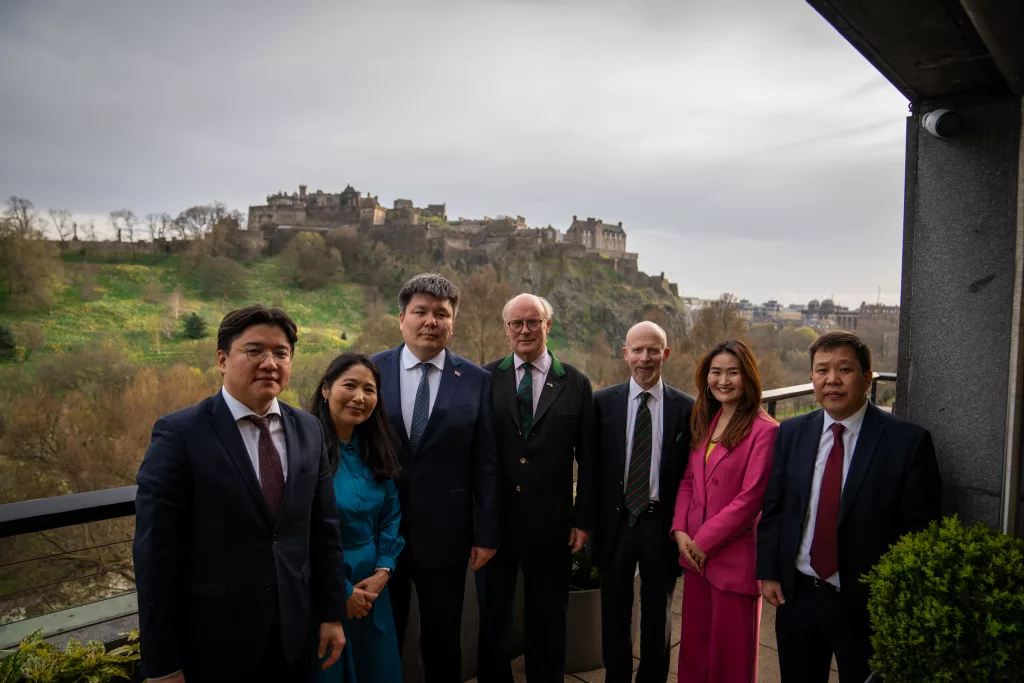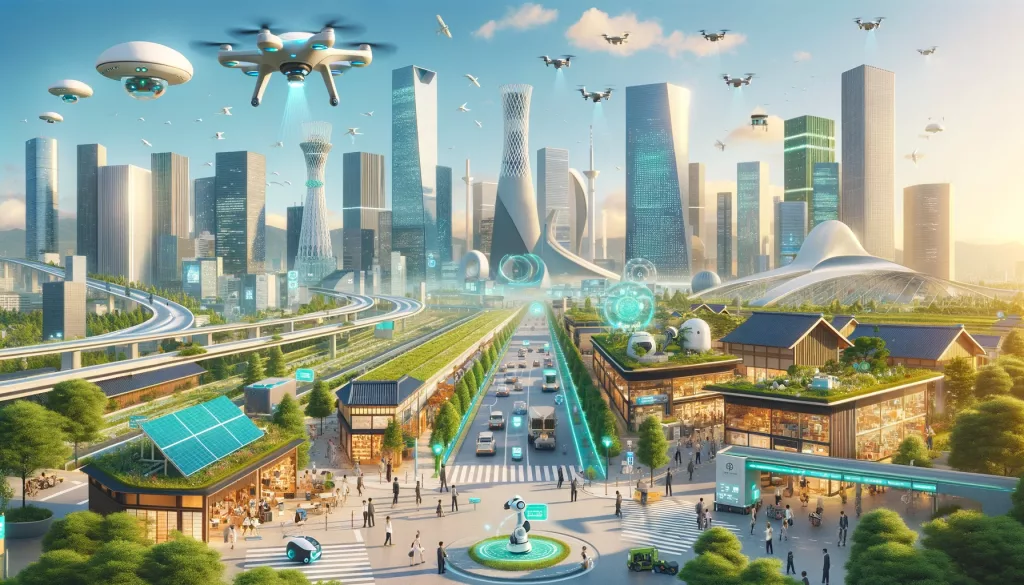On the coast of south China, at the very bottom of the Pearl River delta, is a city like nowhere else. Stretched like a downward-pointing finger across a peninsula, two islands and a built-over salt marsh, Macau is one of China’s ‘special administrative regions’ (SAR), a semi-autonomous city-state that has its own laws, issues its own currency, and writes its street signs in Portuguese – yet is indisputably Chinese. The first European colony in China (1557) and the last to be handed back (1999), Macau has long been overshadowed by Hong Kong, its neighbouring, much larger SAR. Nevertheless, it plays a fascinating role in China’s economy, and is now one of the five richest places on earth. GDP per capita last year was $90,000 a year – triple Scotland’s miserly $30,000 – but even this represents a fall from pre-pandemic figures. In 2019, GDP per capita was $125,000; in 2013 it was an eye-watering $145,000, making the territory second only to Qatar. Even in a relatively bad year, Macau exceeds HK, and is snapping at the heels of Singapore: not bad for a city you can cross on foot in thirty minutes.
Even if not evenly distributed – the top 10% of Macanese make 60% of the money, and most ordinary people live in the modest apartments at the top of lung-busting staircases that put Edinburgh Old Town to shame – Macau’s wealth is impossible to miss. Narrow cobbled streets roar to the sound of Jaguars and Ferraris, while I have never been anywhere else where the same two jewellers thought it necessary to have fourteen shops between them on the same four hundred yards of street. Even on a wet January morning, or during the tourist crush of Chinese New Year, Macau maintains its old piratical swagger: the taxis and the buses all take tight corners at 45 km/h, as if practising for November’s Grand Prix. Quite contrary to its reputation as a sleepy backwater to Hong Kong’s dynamo, Macau is all go, and it feels as if everyone is out to make their fortune. To someone accustomed to the decline and gloom of modern Britain, visiting such an energetic city is a pleasant shock. So, where does all the money come from? Simple – tourism, shopping and gambling, and lots of each.
As the only place in China where casino gambling is legal (you can bet on the horses in Hong Kong), Macau attracts millions of mainlanders and international tourists into its dozen or so mega-casinos each year, where they spend – big. Whether ordinary punters trying their luck at the low-cost, low-risk sic bo games at the Grand Lisboa, to international high-rollers laying down enormous bets on private games of punto baccarat (in 2017, one anonymous Chinese gambler lost $75 million – that’s US dollars, not Hong Kong – in a single ill-fated round at the Venetian), they all feed money into a vast system that far outstrips anything Las Vegas can offer. In any given year Macau’s casinos take between three and seven times what Las Vegas and Atlantic City do. Monte Carlo is barely a blip, as far as Macau is concerned. Even other Asian gambling powerhouses, like Malaysia’s Genting Highlands, barely come close.
And it’s not just gambling. Macau is an enormous consumer playground, catering for any desire. The casinos along the Cotai Strip, which double as themed hotel resorts, vie to out-do each other with tax-free shopping, restaurants and attractions. If your neighbour has a quarter-scale replica of Big Ben, you respond with a one-third-scale model of the Eiffel Tower, or art-deco figurines twenty stories high; if they have one Michelin-starred restaurant, you should have two. The Venetian, as its name suggests, goes full Disneyland, with a life-size copy of the Grand Canal complete with singing gondoliers. Every luxury brand you can think of has a store in the casinos, and many visitors might never leave their chosen destination, except to get to and from the airport and the ferries. (Scots need not worry: even if we don’t have our own themed casino – yet – Macau still has the Edinburgh Cafe, near Tap Seac Square, offering a unique take on Scottish food).
Even speaking as someone who vastly prefers old Macau – a busy but charming city of cathedrals, parks, excellent restaurants and lovely Portuguese bookshops – or the quiet villages and beaches down in Coloane, the casinos along Cotai are inarguably impressive, and clearly popular. However garish, they make the city go round. Without them, Macau could not have made the massive leap in wealth it did after returning to China.
All of this relentless activity on Cotai is more money into the coffers, and may even be the future of the city’s economy, as consumer demands shift in line with generational trends. Put more simply: while today’s young Chinese super-rich, probably the world’s most coveted consumer demographic, still love luxury hotels, fast cars, flashy watches and impossibly exclusive clothing brands, they are much less likely to put a million dollars on red. A lightning tour of Macau’s casino floors – at least, the areas the ordinary gweilo punter can wander into – would confirm this; my fellow gamblers were nearly all middle-aged men in tracksuits. Unless China’s millennials all suddenly discover a passion for roulette, Macau will soon have to adapt to changing tastes. But adaptation has been in Macau’s blood for well over five hundred years.
Regardless of where the money comes from – shopping, hotels, eating, or games – what’s incontestable is that it does Macau good. Even with a favourable rate on the casinos’ earnings, the city government gets so much revenue from gambling that its residents pay nearly zero tax on anything, and actually get an annual cash payout. Now that the pandemic is over, and the tourists are flooding back (literally; on my last visit, it took me the better part of 30 minutes to get from St Paul’s to the Senado, only about 800 yards away), Macau is gearing up for a bright future.


